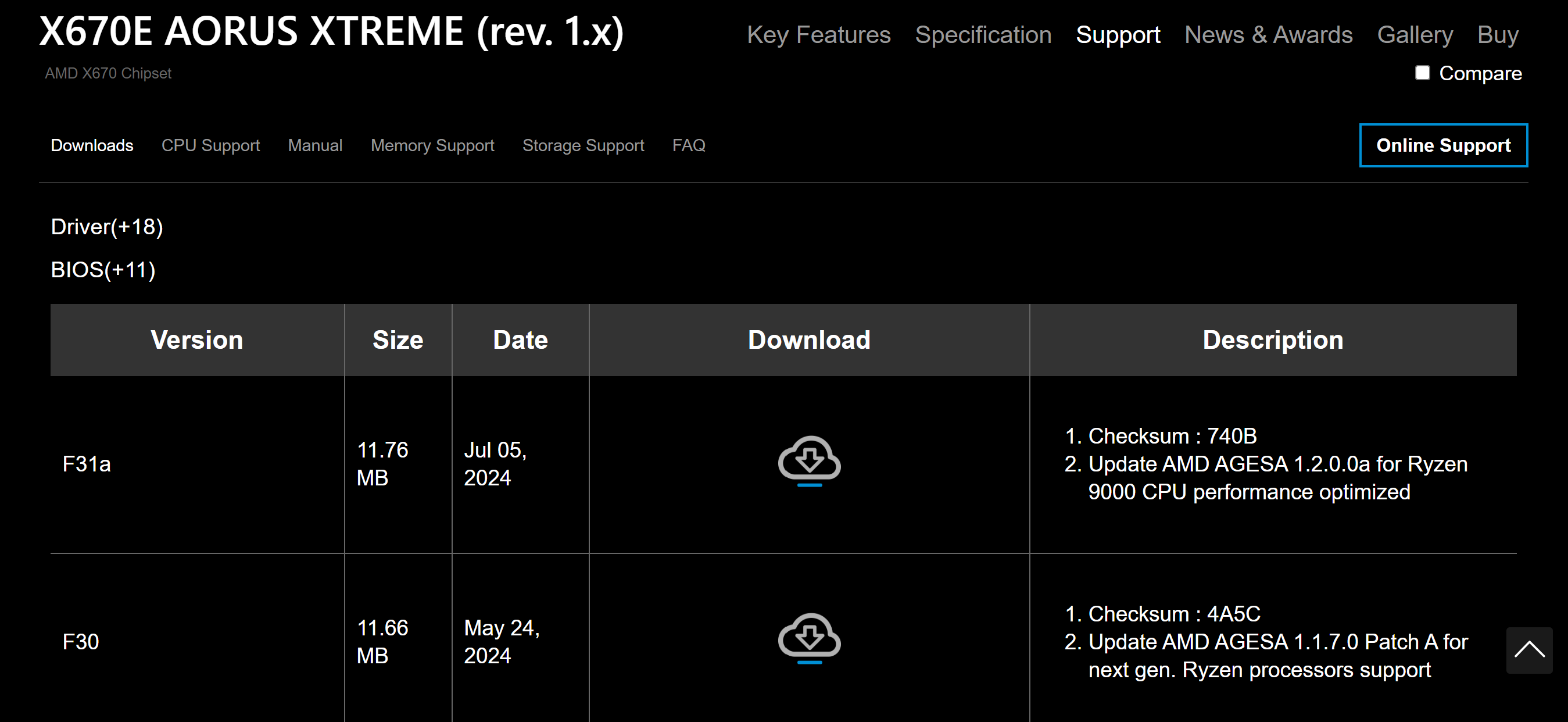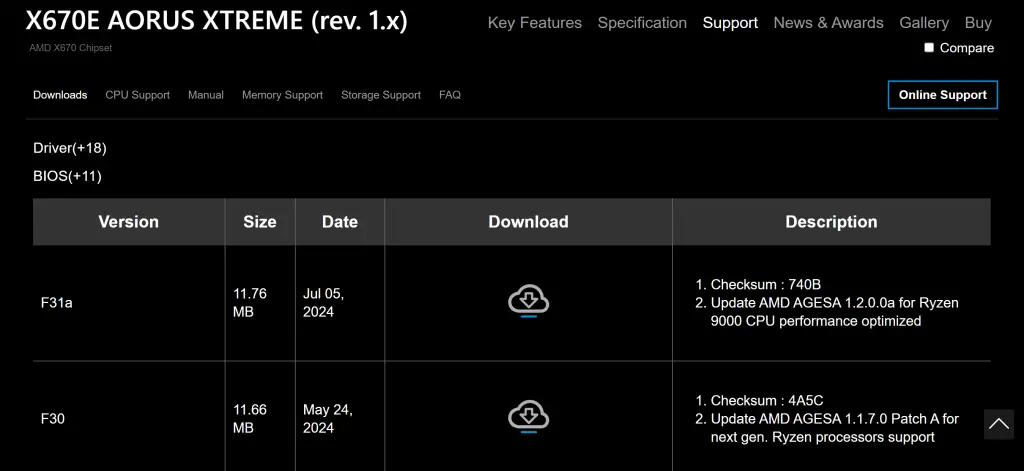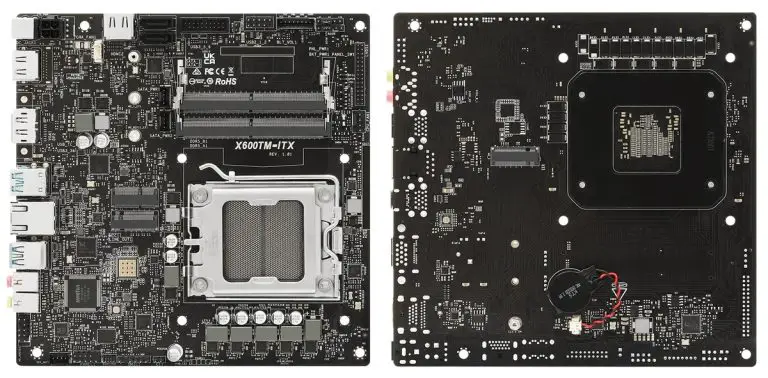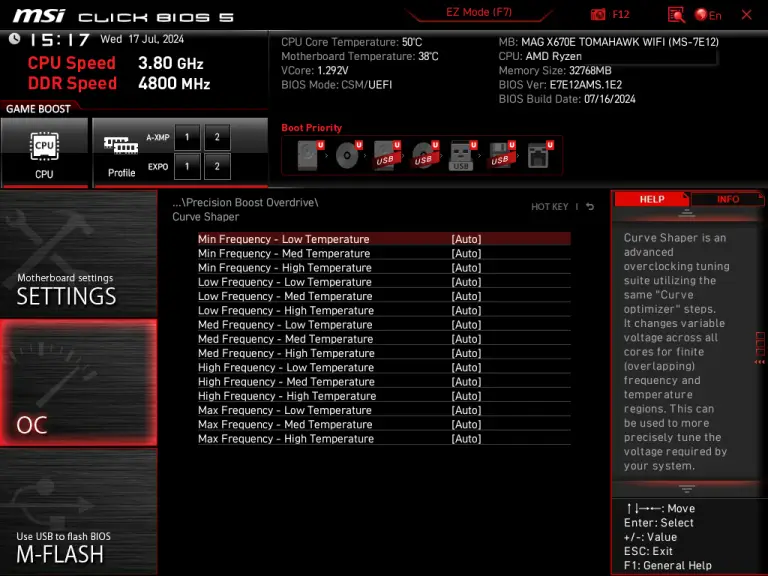
In recent times, both MSI and ASUS have unveiled new BIOS for their AM5 motherboards, built upon the AMD AGESA 1.2.0.0 microcode, primarily to enhance the stability and performance of the new Ryzen 9000 series processors. It has come to light that Gigabyte has also begun providing BIOS built on AGESA 1.2.0.0a for its AM5 motherboards, in preparation for the Zen 5 architecture processors.

Since April of this year, AMD has released several updates, starting with AGESA 1.1.7.0, which offered initial support for Zen 5 architecture chips. AGESA 1.2.0.0a is the fourth AGESA microcode for the Ryzen 9000 series processors, with stability and performance progressively improving. It remains unclear whether Gigabyte has incorporated any other optimizations in this new BIOS version, nor is the extent of the differences between AGESA 1.2.0.0a and AGESA 1.2.0.0 known at this time.
AMD unveiled the Ryzen 9000 series processors, codenamed “Granite Ridge,” at COMPUTEX 2024. The initial launch includes the Ryzen 9 9950X, Ryzen 9 9900X, Ryzen 7 9700X, and Ryzen 5 9600X, with core/thread counts mirroring those of the previous generation Ryzen 7000 series, corresponding to 16 cores/32 threads, 12/24 threads, 8/16 threads, and 6 cores/12 threads, respectively.
AMD has also introduced two new chipsets for the AM5 platform, the X870 and X870E, featuring USB4 and PCIe 5.0 standard graphics cards and M.2 interfaces. However, rumors suggest these won’t be available until September 30th, two months after the Ryzen 9000 series processors’ launch on July 31st. Gigabyte recently launched the B650E AORUS PRO X USB4 motherboard, which is already available for purchase and can be considered a precursor to the forthcoming X870 motherboards.


